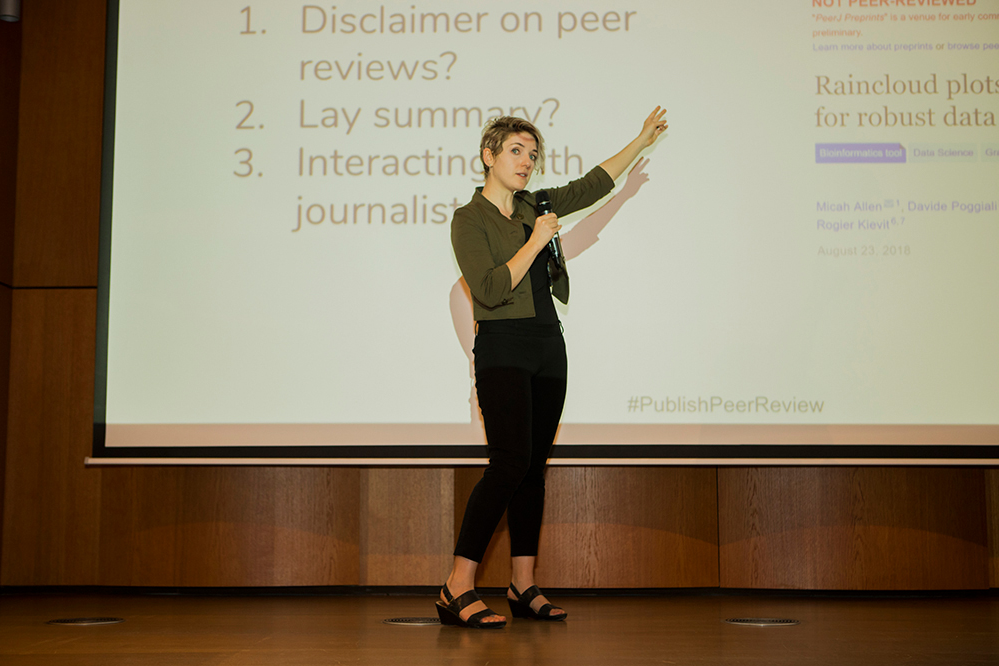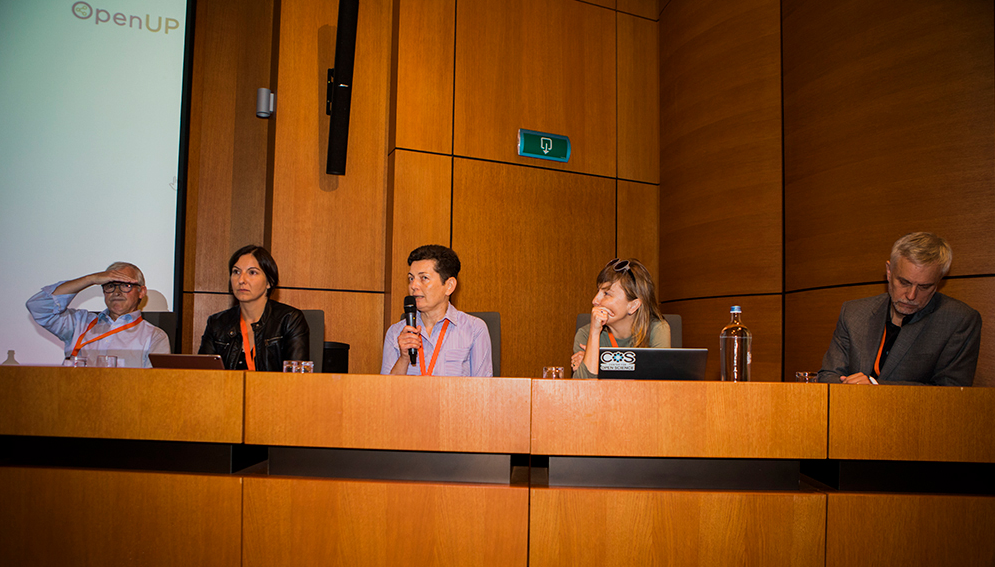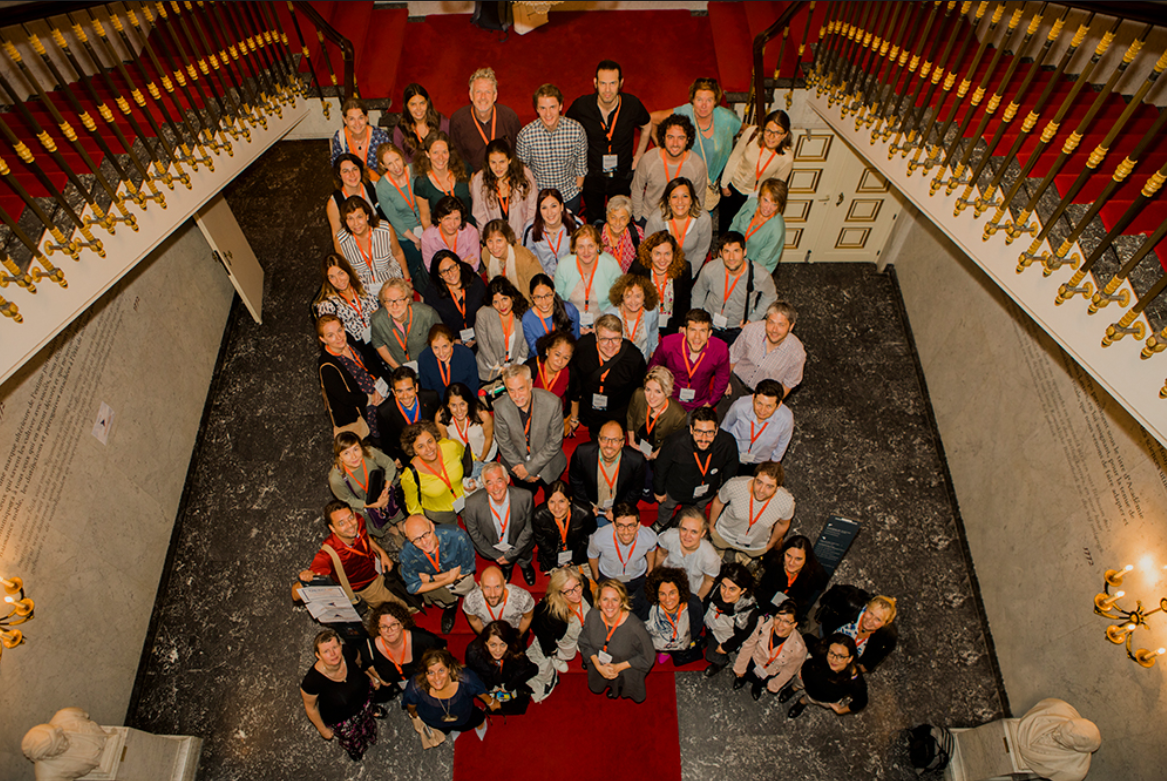OpenUP Final Conference: ‘Opening Up the Research Lifecycle: Innovative Methods for Open Science’ - Day II
The OpenUP final conference was a celebration of 2 wonderful years of intensive work & an opportunity to exchange state-of-the-art ideas for the Review-Disseminate-Assess phases of the research lifecycle under the prism of Open Science. Report from Day 2
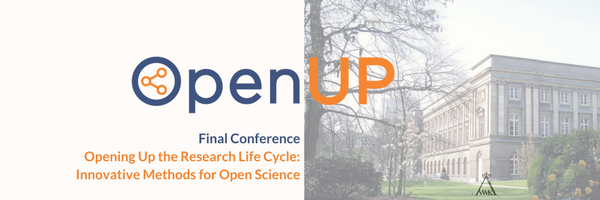
The OpenUP final conference was both a celebration of two wonderful years of intensive work and an opportunity to share and promote state-of-the-art ideas and services for the review-disseminate-assess phases of the research life cycle under the prism of Open Science. Key aspects and challenges of the currently transforming science landscape were showcased in different interactive sessions, innovative initiatives were displayed during the Marketplace, original ideas were expressed by young academics and policy recommendations were discussed in aim to address the emerging challenges and to adapt to the new conditions. Through all the conference the participants had the opportunity to engage with the speakers and with each other using the Mentimeter interactive tool.
Session 5
The second day of the OpenUP Final Conference was inaugurated by the keynote speech of Jessica Polka, the executive director of ASAPbio, talking about publishing peer review and its impact to researchers and science (Jessica also shared with the audience the hashtag #PublishPeerReview), commenting and giving feedback to preprints and how they can influence journals’ decisions, recognising of ghost peer reviewer and announced the TRANSPOSE a new initiative aiming to crowdsource a list of journal policies for open peer review, co-reviewer involvement, and pre-printing.
Image 8: Jessica Polka, “The future of Peer Review”
Session 6 - The Future: Coffee and the New Methods Marketplace
Next, practical guidance on using new methods was shared in the OpenUP Marketplace, together with representatives of other open science projects and initiatives. The results of the OpenUP pilots, were showcased as well as the initiatives: OpenAIRE, FOSTER, FIT4RRI, Open Knowledge Maps, DARIAH, HIRMEOS and RDA Early Career and Engagement Interest Group.
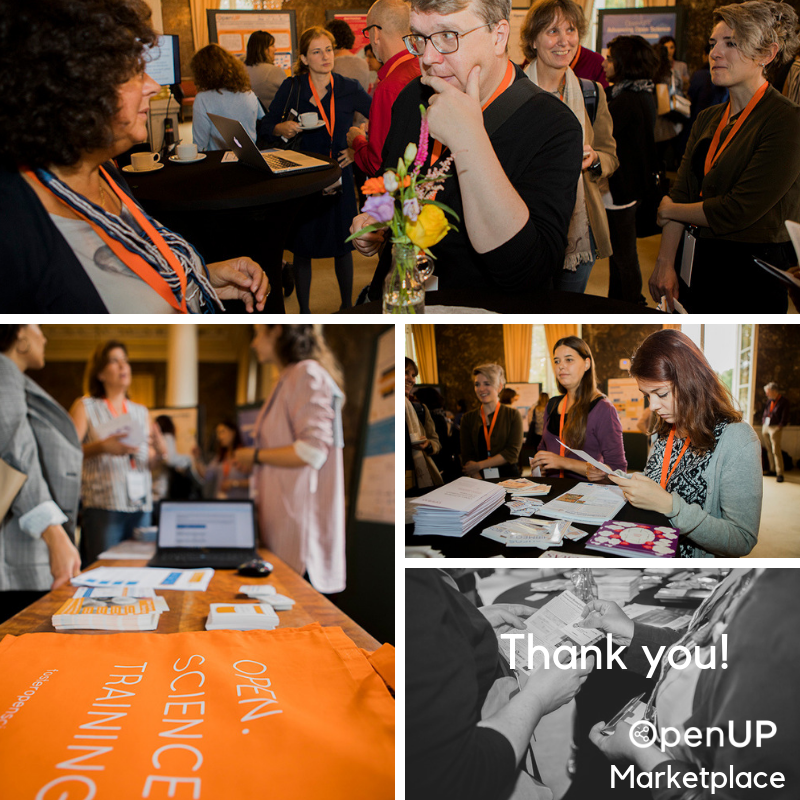
Image 9: OpenUP Marketplace
Session 7 - The Future of Open Science in research policies
OpenUP Final Conference was the first conference where Plan S and its 10 principles were so actively discussed as the cOAlition S initiative was launched just one day before the conference. In the next session, professor Karel Luyben took the floor looking ahead to the future of Open Science in regard of research policies with a special focus the scenery in the Netherlands and in Plan S. Then, Natalia Manola (OpenAIRE, OpenUP) presented OpenUP’s policy recommendations, which will be very soon updated. The session was closed with an interesting panel discussion with professor Karel Luyben, Natalia Manola, Eva Méndez (Universidad Carlos III de Madrid), Mojca Kotar (University of Ljubljana, OpenAIRE NOAD for Slovenia), Elisabeth Lex (Graz University of Technology, Know-Center) and Frederick Fenter (Frontiers). One subject that intrigued the audience was the quality measurement of researchers and institutions.
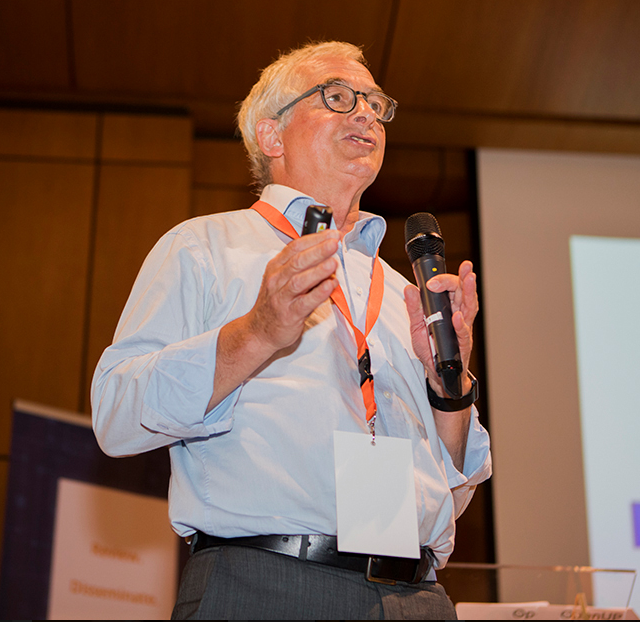 |
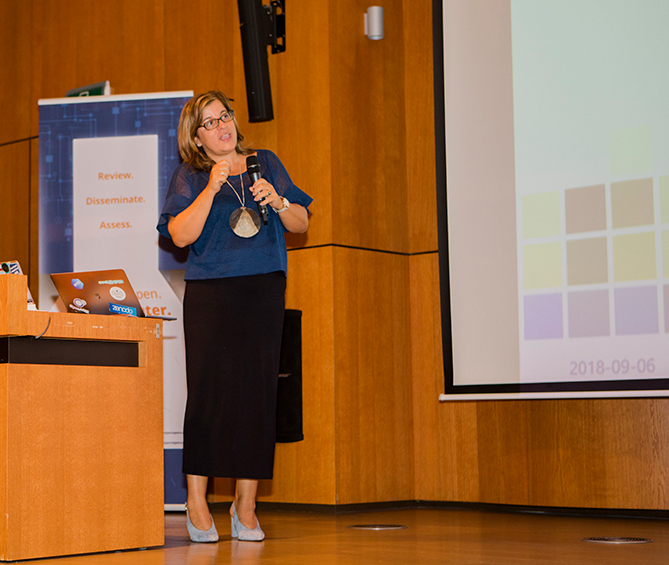 |
Image 10: Professor Karel Luyben talking about policies in the context of Open Science. (left) Natalia Manola presenting OpenUP policy recommendations.
Image 11: Panel discussion with (from left to right) Karel Luyben, Elisabeth Lex, Mojca Kotar, Eva Méndez and Frederick Fenter.
Session 7 - The Future: Who wants some Open Science?
Bianca Kramer and Jeroen Bosman (101 Innovations in Scholarly Communication) lead this interactive session in which gaps, recommendations and opportunities were discussed together with the audience. Plan S scenarios were of course the main subject of the discussion and its potential impact on specific steps of the research lifecycle: peer review, dissemination and impact assessment.
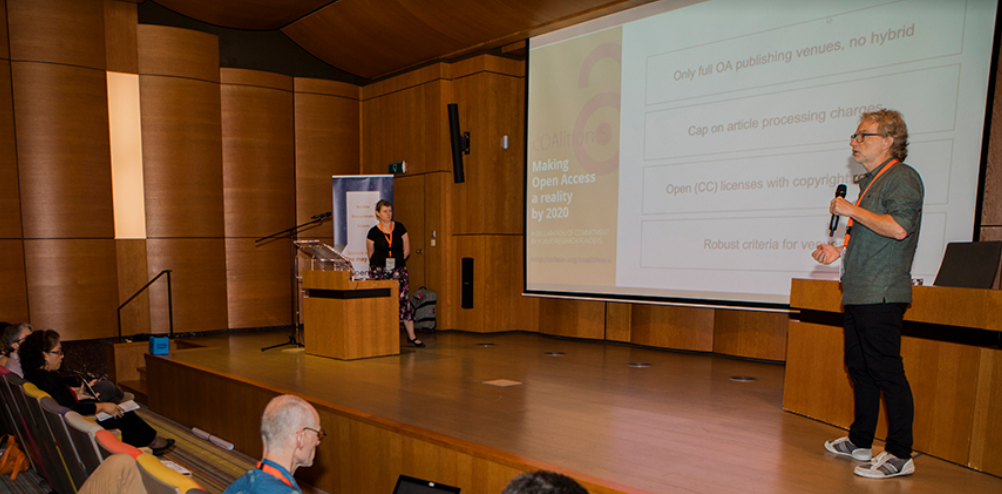
Session 9
Tony Hellauer-Ross and Michela Vignoli gave an overview of the two full days of the OpenUP Final Conference and shared some Open Science Stories written and pinned to the #opensciencestory wall by the participants. Some open science stories shared are the following:
- “Where are we with modern two-step peer review "Registered Reports"? Transparent, improved quality, reduced bias & open for catering to all results (positive-negative)”
- “For me, the future of Open Science is about engaging with research communities and find together technical solutions to fit their needs.”
- “What I will do tomorrow to make science more open is publishing exclusively open access. I will talk about open science to my peers and researchers I meet at different venues. Keep OpenUP Hub updated!”
- “For me, the future of Open Science is about everyone having access to new knowledge. Does not matter how much € or $ your organisation has! Or which country you live in!”
- “My Open Science ‘Aha’ moment was when I know there’s a thing called preprint and preprint server”
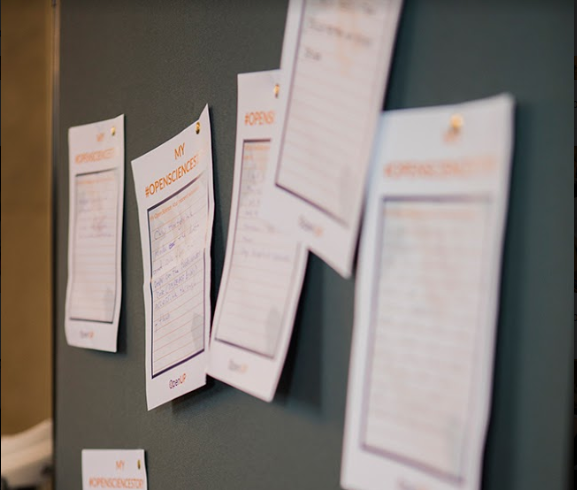
- “What I will do tomorrow to make science more open is …”
- “For me the future of Open Science is about ...”
- “My Open Science ‘Aha’ moment was when ...”
- “What I would like to know from the other participants is ...”
Image 14: Thank you to all keynotes, speakers, panelists, marketplace presenters and participants!
| For more images from the OpenUP Final Conference, follow us on Instagram! | 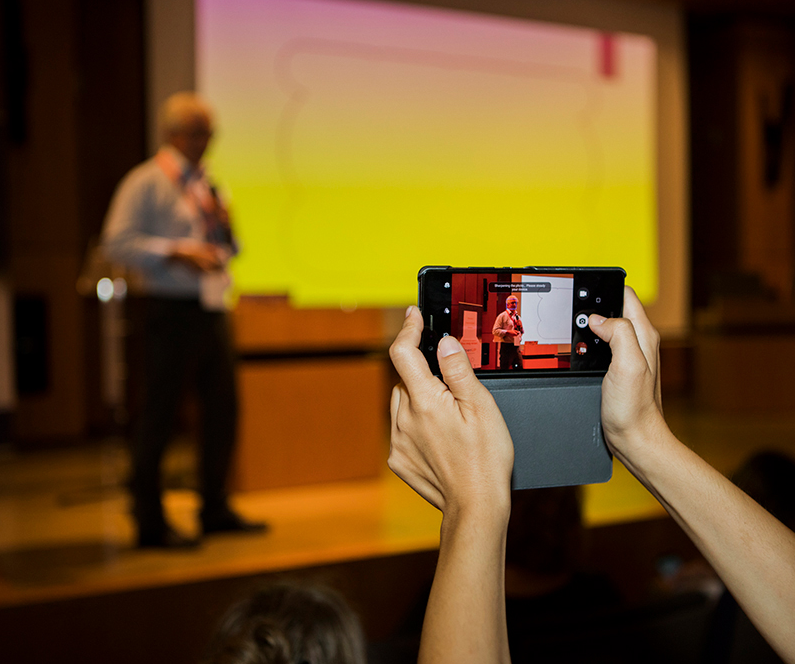 |
